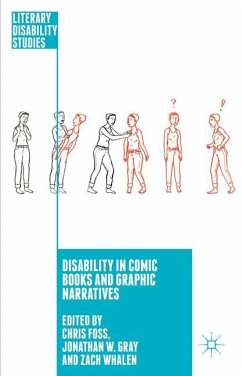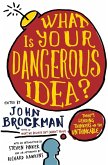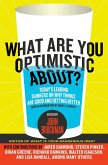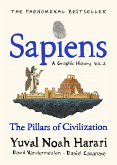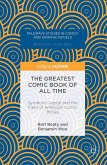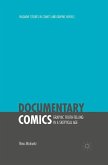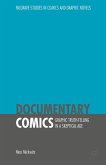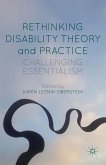As there has yet to be any substantial scrutiny of the complex confluences a more sustained dialogue between disability studies and comics studies might suggest, Disability in Comic Books and Graphic Narratives aims through its broad range of approaches and focus points to explore this exciting subject in productive and provocative ways.
Disability in Comic Books and Graphic Narratives invites readers to consider both canonical and alternative graphic representations of disability. Some chapters focus on comic superheroes, from lesser-known protagonists like Cyborg and Helen Killer to classics such as Batgirl and Batman; many more explore the amazing range of graphic narratives revolving around disability, covering famous names such as Alison Bechdel and Chris Ware, as well as less familiar artists like Keiko Tobe and Georgia Webber. The volume also offers a broad spectrum of represented disabilities: amputation, autism, blindness, deafness, depression, Huntington's, multiple sclerosis, obsessive-compulsive disorder, speech impairment, and spinal injury. A number of the essays collected here show how comics continue to implicate themselves in the objectification and marginalization of persons with disabilities, perpetuating stale stereotypes and stigmas. At the same time, others stress how this medium simultaneously offers unique potential for transforming our understanding of disability in truly profound ways.
Disability in Comic Books and Graphic Narratives invites readers to consider both canonical and alternative graphic representations of disability. Some chapters focus on comic superheroes, from lesser-known protagonists like Cyborg and Helen Killer to classics such as Batgirl and Batman; many more explore the amazing range of graphic narratives revolving around disability, covering famous names such as Alison Bechdel and Chris Ware, as well as less familiar artists like Keiko Tobe and Georgia Webber. The volume also offers a broad spectrum of represented disabilities: amputation, autism, blindness, deafness, depression, Huntington's, multiple sclerosis, obsessive-compulsive disorder, speech impairment, and spinal injury. A number of the essays collected here show how comics continue to implicate themselves in the objectification and marginalization of persons with disabilities, perpetuating stale stereotypes and stigmas. At the same time, others stress how this medium simultaneously offers unique potential for transforming our understanding of disability in truly profound ways.
"This collection of essays can undoubtedly serve as a useful entry into both the fields of disability studies in general and disability in comic books in particular. ... the essays manage to provide a variety of insights into genres ranging from personal memoir to superhero comics. ... the collection shows the wide applicability of disability studies that could be useful not only to scholars of comics books, but also to experts of children's literature and visual arts." (Nikola Novakovic, Libri & Liberi, Vol. 10 (1), 2021)
"Foss (Mary Washington), Gray (CUNY), and Whalen (Mary Washington) offer an ambitious cross-disciplinary collection bringing disability studies theories to bear on the burgeoning genre of graphic literature. ... The work is useful for several disciplines including disability studies, graphic literature, psychology, and popular culture. Summing Up: Recommended. Upper-division Undergraduates through faculty." (M. F. McClure, Choice, Vol. 54 (6), February, 2017)
"Foss, Gray, and Whalen provide comics scholars, as well as those located in such related fields as children's literature and visual rhetoric, the opportunity to think critically about key issues in disability studies and their particular representation in hybrid visual-verbal texts. ... This collection captures the urgency of the intersection of comics and disability, and the absence of non-American comics texts suggests an opportunity for the discussion to continue developing further through various national and cultural perspectives." (Charles Acheson, The Lion and the Unicorn, Vol. 41 (1), January, 2017)
"Foss (Mary Washington), Gray (CUNY), and Whalen (Mary Washington) offer an ambitious cross-disciplinary collection bringing disability studies theories to bear on the burgeoning genre of graphic literature. ... The work is useful for several disciplines including disability studies, graphic literature, psychology, and popular culture. Summing Up: Recommended. Upper-division Undergraduates through faculty." (M. F. McClure, Choice, Vol. 54 (6), February, 2017)
"Foss, Gray, and Whalen provide comics scholars, as well as those located in such related fields as children's literature and visual rhetoric, the opportunity to think critically about key issues in disability studies and their particular representation in hybrid visual-verbal texts. ... This collection captures the urgency of the intersection of comics and disability, and the absence of non-American comics texts suggests an opportunity for the discussion to continue developing further through various national and cultural perspectives." (Charles Acheson, The Lion and the Unicorn, Vol. 41 (1), January, 2017)

